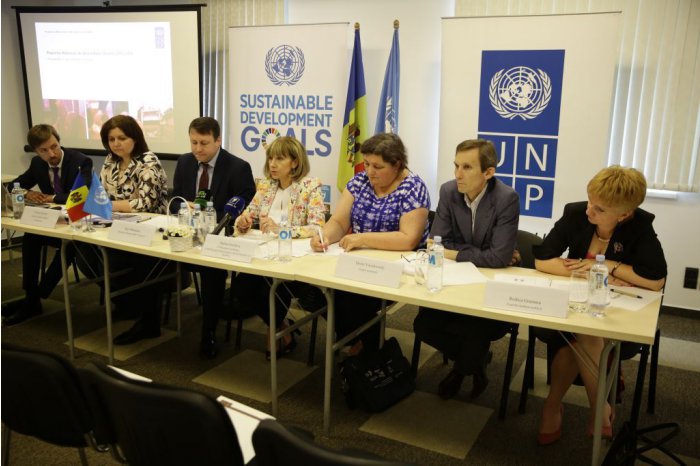National Human Development Report finds out rural poverty four times higher than urban one in Moldova
14:30 | 14.06.2017 Category: Social
Chisinau, 14 June /MOLDPRES/ - The urban-rural income gap doubled in five years, from 23.6% in 2010 to almost 42% in 2015. Although the average disposable income of the population increased twice in 2010-2015, the gap between urban and rural population has increased too, reads the National Human Development report 2015/2016, launched in Chisinau today.
According to the authors, these inequalities are also amplified by the limited access to quality utility services in rural areas. In the absence of an economic growth felt by rural residents, the remittances are the only ones to cover the consumption. The report also shows that the gap between absolute urban and rural poverty is significant – 19% of population living at poverty line in rural areas vs. 5% in urban areas.
“We are considering inequalities as deviations from the favorable average, namely from the average human development result. While such deviations are present across the entire region of Europe and Central Asia, including in Moldova, there are some context specific issues, which require home grown solutions”, said Dafina Gercheva, UN Resident Coordinator and UNDP Resident Representative in the Republic of Moldova.
“In Moldova inequalities are on the rise, being driven by lack of decent jobs, poor quality of services, urban-rural divide, systemic and endemic corruption and weak social inclusion and cohesion. Bridging the gap between the rich and poor, addressing complex and interrelated challenges and paving the way to prosperity and equality requires comprehensive and holistic approach and concerted efforts”, noted Dafina Gercheva.
The average consumption expenditures of the population increased by 12.8% in 2015 compared to 2014. The largest share of financial resources is spent on food, housing maintenance, clothing, transport and communications. Only 0.6% of expenditures is spent on education, compared to 42.1% spent on food.
Human development does not stop at income but implies access to basic services. In rural areas, 8 out of 10 wells are polluted. Only 43% of villagers have access to drinking water compared to 90% of population in urban area. The poorest population spends on average up to 15% of the disposable income on minimal standard of drinking water and sewage service, which costs too much. There is a significant gap in accessing public services by persons with disabilities. Over 70% of public institutions are not equipped with access ramps.
The report recommends directing the policies and strategies towards middle class development, because it accounts for a large share of the population, and hence, will gain access to quality services that would contribute to a sustainable human development.
The National Human Development Report 2015/2016 was worked out by the Viitorul (Future) Institute for Development and Social Initiatives.
(Reporter V. Bercu, editor L. Alcaza)

